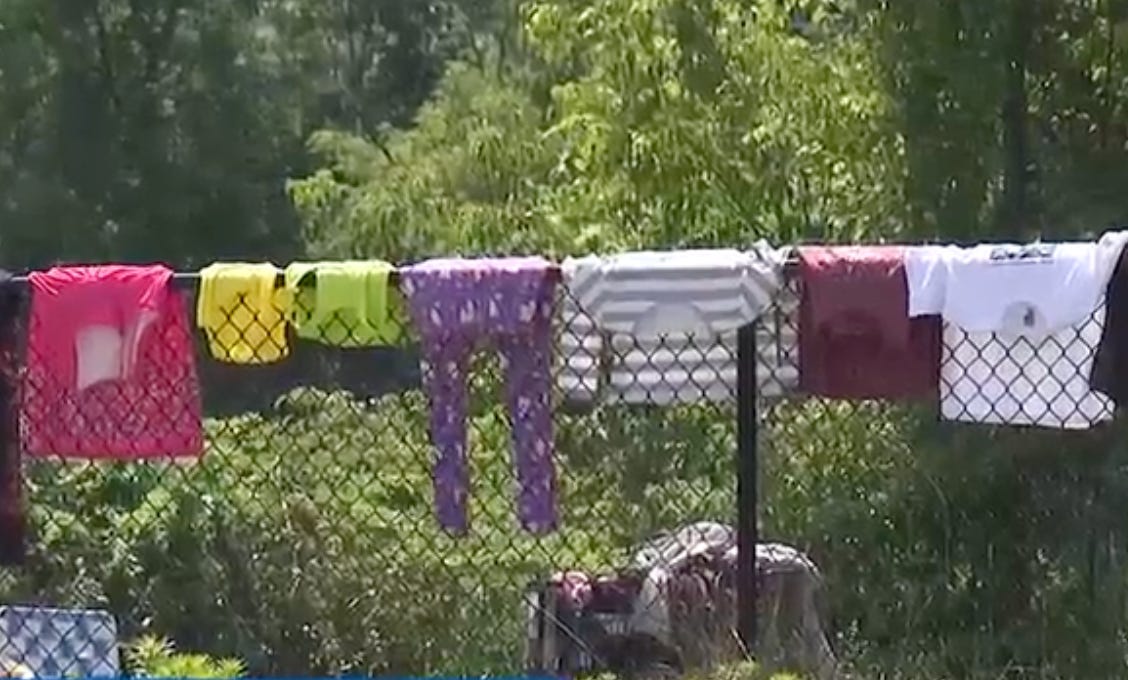Montpelier Police Responded to 45 Incidents Before Clearing Homeless Encampment in Montpelier
Both Sides, Full Story: You Decide.
City officials in Montpelier cleared a homeless encampment near the downtown transit center this week, citing mounting safety concerns and violations of local ordinances that prohibit overnight camping in public parks. The action comes just weeks after Vermont’s pandemic-era motel voucher program officially ended, displacing hundreds of vulnerable Vermonters — and sparking renewed debate about homelessness, governance, and community responsibility.
The encampment, located in Confluence Park along the Winooski River, had become a temporary refuge for individuals and families with nowhere else to go. Among them was Elizabeth Byam, who told Vermont Public her family — including a pregnant daughter-in-law and small children — had relied on the state’s motel voucher program until it expired July 1. Byam said the family moved into tents near the downtown bus station shortly after.
“We’re just trying to survive,” she told the outlet after receiving a 24-hour notice from the city to vacate the park.
Both Sides of the Story
The city’s decision followed weeks of mounting complaints from nearby residents and business owners — and dozens of police calls to the area. According to WCAX, Montpelier police responded to approximately 45 incidents involving the encampment in just one week, including reports of public intoxication, open container violations, and at least one assault.
“The city does not take these actions lightly,” acting city manager Kelly Murphy stated in a previous comment about encampment enforcement. “But when an area becomes unsafe or unsanitary, especially in sensitive downtown locations, we have a responsibility to respond.”
City ordinance prohibits overnight camping in public parks, though Montpelier officials have historically tolerated encampments that do not pose health or safety risks. In this case, city leaders say conditions at Confluence Park had deteriorated and that the location’s high-traffic visibility added to the urgency.
Critics of the city’s action say families were forced onto the streets with little alternative. Housing advocates have condemned the end of the motel voucher program, describing it as abrupt and harmful to at-risk Vermonters, although Governor Phil Scott and his administration had for more than a year publicly warned that the program was temporary and would not be extended indefinitely.
Failing to Plan or Planning to Fail
As early as spring 2023, Scott referred to the pandemic-era expansion of the General Assistance Emergency Housing Program as a “financially unsustainable” stopgap. In March 2025, he vetoed a legislative attempt to prolong the program’s winter rules, urging lawmakers instead to redirect resources into long-term housing and emergency shelter capacity.
“The Administration has made it clear for over a year that the General Assistance Emergency Housing Program, in its current form, is not financially or operationally sustainable,” Scott wrote in a public letter following the veto. He reiterated that view in multiple press briefings throughout 2024 and 2025.
Despite those warnings, many service providers continued to rely on the program, and transitional housing solutions have lagged behind. On July 1, approximately 380 households were removed from motels statewide, according to data reported by NBC5.
Montpelier Cares
In Montpelier, the city has coordinated with local organizations such as Good Samaritan Haven to support unhoused residents, and officials say newly funded state shelters are expected to open later this year in Montpelier, Williston, and Waterbury.
Still, the transition has not been smooth.
“It’s heartbreaking,” said one downtown resident, speaking on condition of anonymity. “But at the same time, downtown has to feel safe for everyone — workers, families, visitors. I think the city waited as long as it could.”
Full Story
“Yes, these are vulnerable Vermonters who deserve dignity and help,” said one local business owner. “But we also need to be honest about what the city is dealing with — complaints, overdoses, assaults. It’s not heartless to try to maintain some order.”
As the state pivots from emergency vouchers to more permanent housing options, city officials say they will continue to enforce ordinances while working with nonprofit partners to provide services. That includes directing campers to safer, alternative locations and case management support.


